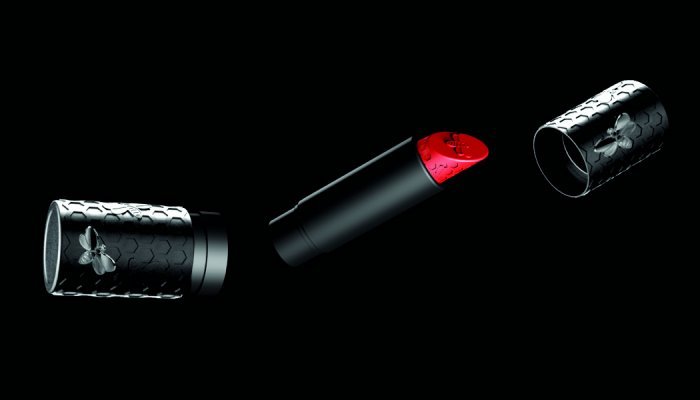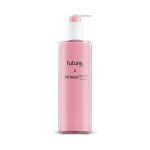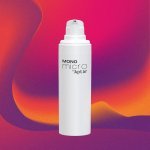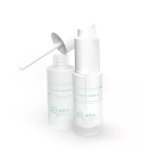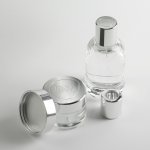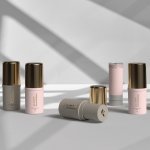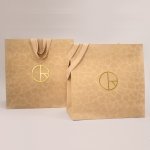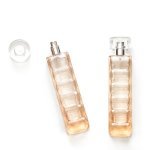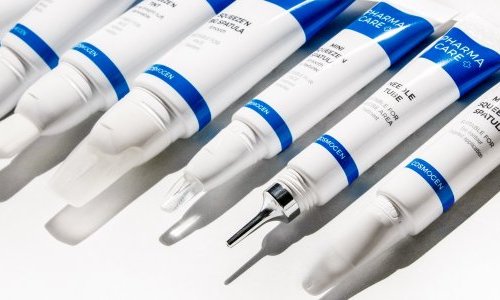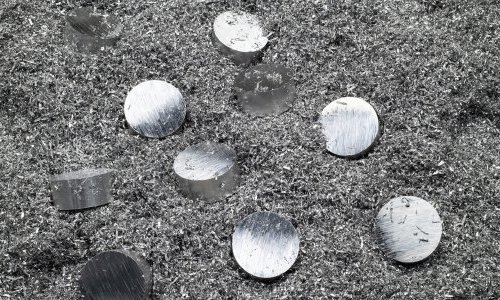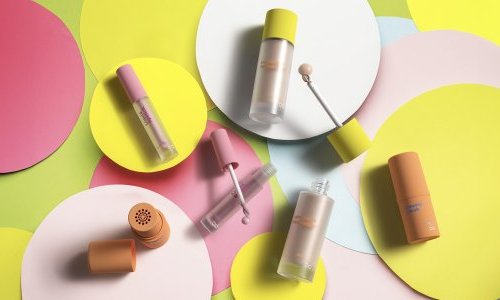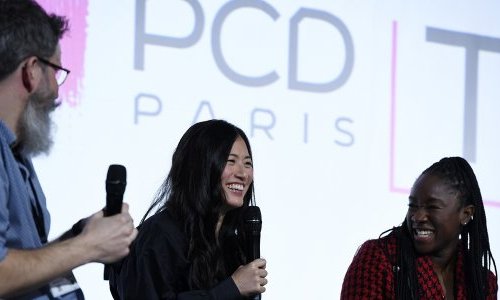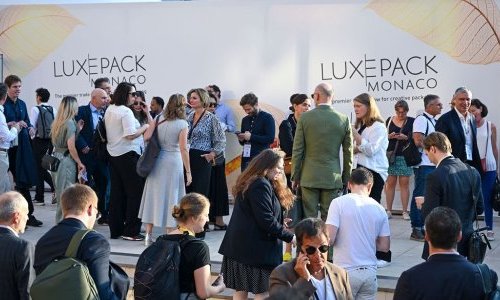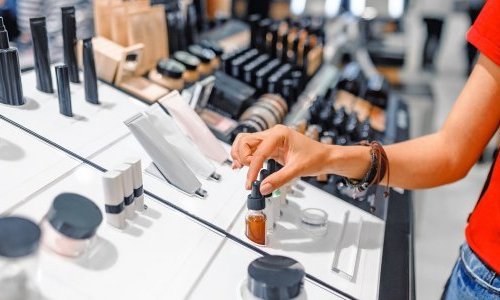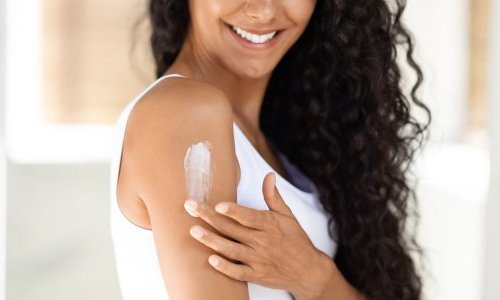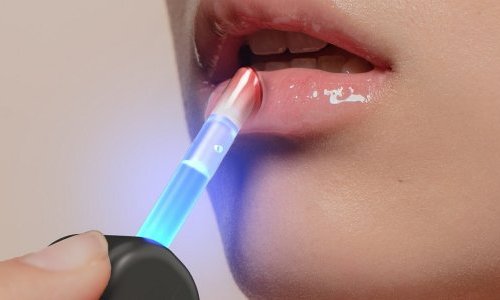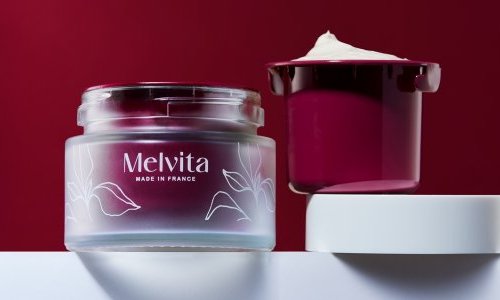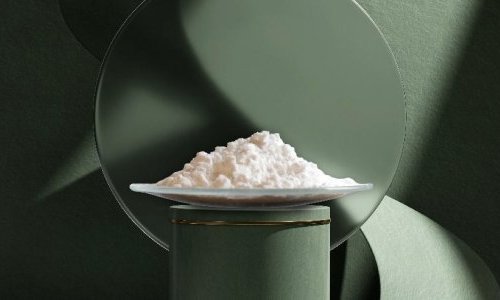Given the environmental issues at stake and the regulations to come, the use of recycled and biosourced materials and the development of monomaterial packaging solutions in line with the circular economy principles were the main areas of packaging innovation in all segments.
Circular plastics
For example, as regards plastics, the use of recycled and upcycled materials was combined with the development of monomaterial solutions compatible with the main household waste recycling streams.
Dow, the manufacturer of Surlyn, an ionomer used for perfumes and cosmetics jars and caps, announced the launch of two sustainable versions of its flagship material: Surlyn Ren, made from biowaste like used cooking oil, and Surlyn Cir, made from mixed plastic waste. These two ranges derived from alternative raw materials offer the same aesthetic and mechanic performance as the original material. The LVMH Beauty division will be one of the first to use them for its 75 brands.
Aptar Beauty has continued to broaden its monomaterial offering, this time to airless packaging. The beauty packaging specialist showcased the Mono Micro, a new version of the 30-ml airless best-seller Micro, fully made of recyclable PE (label included, thanks to a collaboration with the Autajon company).
In collaboration with Pinard Beauty Pack, Aptar also announced the launch of Future Airless PET, a combination of its e-commerce certified PE-based pump Future and of Pinard’s patented PET-based airless bottle for a fully recyclable pack.
As for Albéa, they unveiled Pure Drop, a dropper concept with a 100% PP-based push-button switch composed of only three parts. Even the pipette is made from PP, and it can be made transparent using PP Clear – a patent application has been submitted. Also, depending on the brand’s choice, the bottle can be made of glass or plastic.
The French manufacturer also completed the BreizhStick range launched last year. Made in Plouhinec, in Brittany, this monomaterial tube – four PP-based parts – designed for the lip care market now comes in two versions: Breizhstick Tilty, developed with a bevelled shape for specific applications, and Breizhstick Blunt, a new, flat-shaped one for standard applications.
Combining ecodesign, customization, and consumer experience, Quadpack highlighted the ShapeUp Stick solution. This 12.5-ml stick can dispense formulas with a high viscosity by giving them any shape, depending on the brand’s wishes: a logo, a symbol, or any other geometric pattern. ShapeUp Stick can be easily refilled and recycled, and the whole pack is made of monomaterial PP, while the cap and base can be PP-PCR-based.
For its part, Cosmogen showcased a new range of 100% PET or RPET sticks, suitable for all types of wax and/or anhydrous formulas.
The paper asset
In the field of premium promotional accessories, bags and paper, Rissmann imagined a prestigious bag based on FSC-certified flocked paper produced with eucalyptus pulp. The surface reveals a suede look and feel, and patterns obtained with a complementary embossing process create an animal coat visual and touch effect.
For its boxes and sets, the Cosfibel company works on multiple mechanical closing solutions excluding any material other than cardboard for a monomaterial design, but also on organic cushion materials like mycelium, a compostable botanical material derived from a mushroom.
As for Procos, they showcased Grace Box, a high-end patented set which, thanks to highly condensed, recycled brown cardboard, is highlighted as a lighter, more economical alternative to conventional boxes made from wood or grey cardboard, with the same thickness.
Following its Plastic-to-Paper strategy, Fedrigoni, the leader of high-end paper for luxury packaging, broadened its Imitlin range with new versions. Originally designed for its similarities with noble materials, Imitlin is now upgraded with Diana, a new embossing solution reminiscent of hammered leather, new shades, elegant finishings, and a high-weight paper offering.
DS Smith, a specialist of corrugated cardboard, unveiled an e-commerce shipping box solution developed in partnership with Guerlain. When they place an order online, consumers choose between the traditional, “iconic” case for the brand’s full shopping experience, or a “basic” case, for a reduced environmental impact. The latter was designed and produced by DS Smith to combine attractiveness and a reduced environmental impact. Three sizes were developed to cover 90% of needs, with minimized empty spaces. It is also possible to integrate paper inside and crease it to better block the products, without any additional material.
Forever aluminium
A noble material ideal for the green transition, thanks to its being infinitely recyclable in well-established streams, aluminium is available in different forms, from monomaterial to refillable designs.
INCA Packaging, the Italian specialist of aluminium and plastic packaging, aims to meet the rising demand with a significant investment to enhance its processes. They will install a brand new water treatment system, reduce energy consumption by 50% and chemical products by 20%, and increase their capacity by 80%.
In addition, the INCA teams have been working on product designs based on recycled aluminium (RE-AL), as well as on monomaterial or refillable solutions. The Italian manufacturer showcased a perfume bottle stopper free from any plastic insert and a cap for cream jars fully made of aluminium, with virgin aluminium outside and recycled aluminium inside, in percentages ranging from 50% to 75%. Ultimately, the INCA team has been working on an aluminium-based, 100% recyclable refill system for cream jars, and is looking to replace Zamak-based ballasts with an aluminium version.
The g.pivaudran company, a specialist of metal transformation, in particular of aluminium for high-end packaging, has also been making investments to modernize its production tool after a record growth period of almost 50% of its turnover expected for 2023. A new automatic anodizing line operational in 2024 will help double its surface treatment capacity, while reducing water, energy, and chemicals consumption by a third. As an example of ecodesigned creation, the company showcased the result of the challenge it took up for Chanel: replacing the varnished, galvanized brass strip which used to decorate the Chance Eau de Toilette bottles with an anodized aluminium strip.
Lastly, Axilone also banked on the full-aluminium strategy with a makeup range including a recyclable monomaterial lipstick. In addition, Axilone has been developing 100% aluminium-based perfume caps to be used as an alternative to Zamak, for example.

